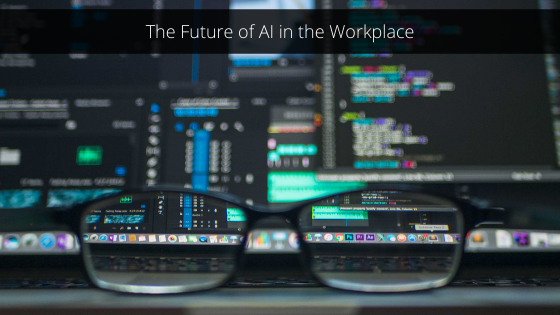

Predicting what impact AI will have on the workplace in the future when we don’t know what will happen next week, due to the Pandemic, is a challenge. However, when talking about AI, the future is already here. It is currently having an impact on talent acquisition, HR, internal communications and pretty much everywhere you look, from medicine, communications and retail. It is no longer that intangible, scary thing seen in a sci-fi movie. We have embraced it already, and most of us make use of it on a daily basis, often without realising.
A useful definition of AI is “a system’s ability to correctly interpret external data, to learn from such data, and to use those learnings to achieve specific goals and tasks through flexible adaptation.” So, where will AI have the most impact next and in what way? Citrix, the global software company, has undertaken an ambitious ‘Work 2035 Project’ where they have consulted organisations, governments and academic institutions to come up with their predictions and help create the frameworks, solutions and skills for organisations, governments and employees to adapt to the new ways of working and embrace, rather than fear them.
One of the most interesting conclusions of the report is showing the disconnect between business leaders and their workforces, with one keen to embrace AI, the other fearing and resisting it. Their findings show that 73% of business leaders believe that technology and AI will make workers at least twice as productive by 2035, while only 39% of the employees affected agree. Such a report gives us all an opportunity to start working to bridge this disconnect and dispel the fear and suspicion it engenders. Business leaders must address the significant changes and training that will be required, and more crucially communicate a compelling vision to all employees in which technology plays a positive role in their lives.
The fear for many of us is that robots will steal our jobs. They may well do so, but if we have the right skills, we can get a better one, as PWC explains “AI is the biggest business opportunity of the next decade. It’s already automating manual and repetitive tasks. Soon it will augment human decisions. Along the way, it will add more to global GDP by 2030 than the current output of China and India—combined. That growth will be more than enough to create many good jobs, while it will also change how current jobs are being done. Leaders will have to understand how AI will impact their workforces, then get them prepared: upskill some workers to do existing jobs, but with AI, and retrain and hire others for the new roles that AI will demand. Schools and parents will have to teach children both STEM skills and a culture of creativity and lifelong learning. For individuals, enterprises, and countries that have the right skills, AI-powered automation isn’t a threat. Its economic boost offers a gigantic prize.”
How do we take advantage of AI without threatening people’s livelihoods? Vishal Marria, the CEO of an enterprise intelligence company has come up with five very useful suggestions:
• Due to the vast array of jobs that could be impacted by AI, it is fundamental to address the potential pitfalls of these technologies.
• Business need to overcome the trust and bias issues surrounding AI by achieving an effective and successful implementation that makes it possible for everyone to benefit.
• Governments must ensure that gains from AI are shared widely across society to prevent social inequality between those affected and unaffected by these developments. For example, this could be through increased investment into training.
• With the additional cost-savings from implementing AI systems, employers should also focus on upskilling their current employees.
• Education systems need to focus on training students in roles directly associated to working with AI, including programmers and data analysts.
A European Union white paper on artificial intelligence written in February 2020, stressed the many advantages: “Artificial Intelligence is developing fast. It will change our lives by improving healthcare (e.g. making diagnosis more precise, enabling better prevention of diseases), increasing the efficiency of farming, contributing to climate change mitigation and adaptation, improving the efficiency of production systems through predictive maintenance, increasing the security of Europeans, and in many other ways that we can only begin to imagine. At the same time, Artificial Intelligence (AI) entails a number of potential risks, such as opaque decision-making, gender-based or other kinds of discrimination, intrusion in our private lives or being used for criminal purposes.”
Whilst artificial intelligence will certainly be more productive than humans for repetitive tasks, we will always outperform machines in roles requiring empathy, building professional relationships and no less important, imagination. Humans are superior to computers in emotional intelligence, moral judgement, and creativity and always will be. But AI can help where the human brain has limitations such as natural bias and can counteract it with impartial data analysis.
AI is a strategic technology that offers many benefits for all of us, companies and society as a whole, provided it is always with the aim of improving the human experience, it is ethical, sustainable and respects fundamental human rights and values.
At Chapple, we specialize in sourcing candidates in external and internal communications, employee engagement, change, HR and business transformation roles.
Contact us on 020 7734 8209 for more information about how we can help you find your next role or indeed find the right people for your business.